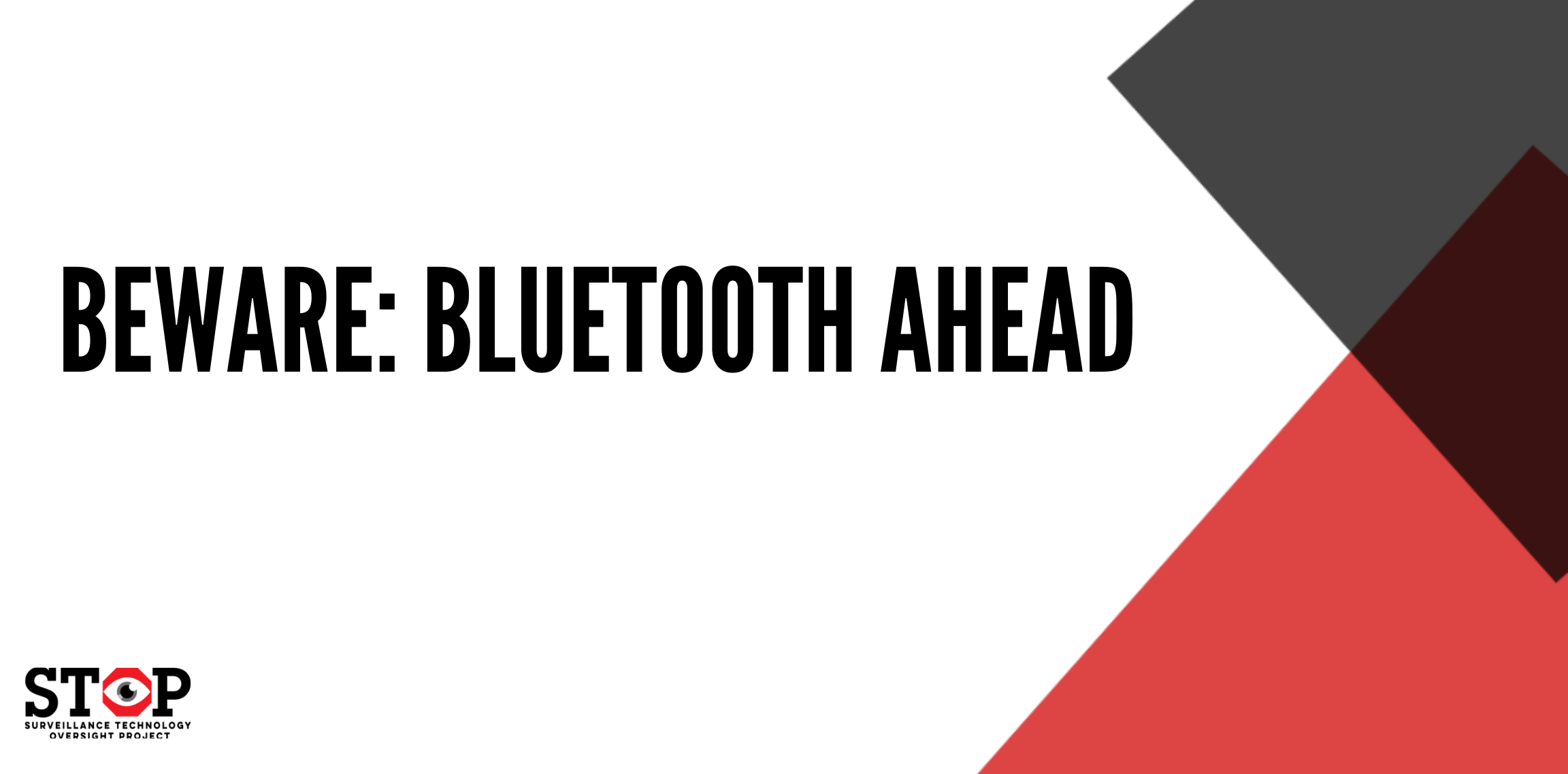Summary
In the fight against COVID-19, one of our most powerful weapons is manual contact-tracing, the time-consuming process of interviewing patients to find who they might have exposed to the virus. Alarmingly, new technological alternatives to manual contact tracing threaten to distract from these public health efforts, creating products that likely won’t improve public health, but which will pose an existential threat to the public’s privacy.
One emerging technology is Apple and Google’s partnership to deploy Bluetooth proximity detection, transforming our phones into roaming Bluetooth beacons. Alarmingly, S.T.O.P.’s analysis of this technology finds that Bluetooth tracking:
Is unlikely to help curb the spread of COVID-19;
May expand health disparities for women, low income communities, immigrant communities, and communities of color; and
Poses previously unexplored risks to privacy.
If Apple and Google’s Bluetooth method goes forward, it’s also clear that existing legal protections are insufficient. Under existing laws, the use of Bluetooth proximity detection will just become another deeply invasive tool in federal, state, and local governments’ arsenal of surveillance technology.


